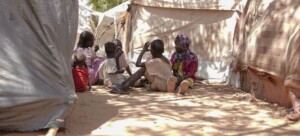New cases of cholera in Sudan’s Blue Nile and Sennar
The daily report of the Ministry of Health on the cholera epidemic shows that 167 people have contracted the disease up till Sunday, 117 in Blue Nile state and 50 in Sennar state. This includes four new cases reported in Blue Nile state and five in Sennar state on Sunday.
 A bed for patients during a cholera outbreak (WHO)
A bed for patients during a cholera outbreak (WHO)
The daily report of the Ministry of Health on the cholera epidemic shows that 167 people have contracted the disease up till Sunday, 117 in Blue Nile state and 50 in Sennar state. This includes four new cases reported in Blue Nile state and five in Sennar state on Sunday.
Four new cases were reported in Wad El Nil Hospital in Sennar state yesterday, bringing the total number of cases in that hospital to 38 since the outbreak of the disease.
Abdelbagi Feda, an activist working in health care, reported to Radio Dabanga that the four new cases came from within the Wad El Nil area.
Feda pointed out that the situation is serious and requires fighting the bacteria that causes cholera. He said that medical and slaughterhouse waste can be found near residential sites.
Ministry of Health
A delegation from the federal Ministry of Health arrived in Sennar on September 17 to assess the health situation in the area.
The Federal Ministry of Health has reported no new deaths from cholera in Blue Nile and Sennar states. Eight people died from the disease so far.
Key facts about cholera
The website of the World Health Organization (WHO) gives the following key facts about cholera.
- Cholera is an acute diarrhoeal disease that can kill within hours if left untreated.
- Researchers have estimated that each year there are 1.3 million to 4.0 million cases of cholera, and 21 000 to 143 000 deaths worldwide due to cholera (1).
- Up to 80% of cases can be successfully treated with oral rehydration solution (ORS).
- Severe cases will need rapid treatment with intravenous fluids and antibiotics.
- Provision of safe water and sanitation is critical to control the transmission of cholera and other waterborne diseases.
- Safe oral cholera vaccines should be used in conjunction with improvements in water and sanitation to control cholera outbreaks and for prevention in areas known to be high risk for cholera.
- A global strategy on cholera control with a target to reduce cholera deaths by 90% was launched in 2017.
Much more WHO information about cholera can be found here.
Follow #CholeraInSudan, #ألكوليرا_السودان
Radio Dabanga’s editorial independence means that we can continue to provide factual updates about political developments to Sudanese and international actors, educate people about how to avoid outbreaks of infectious diseases, and provide a window to the world for those in all corners of Sudan. Support Radio Dabanga for as little as €2.50, the equivalent of a cup of coffee.












 and then
and then